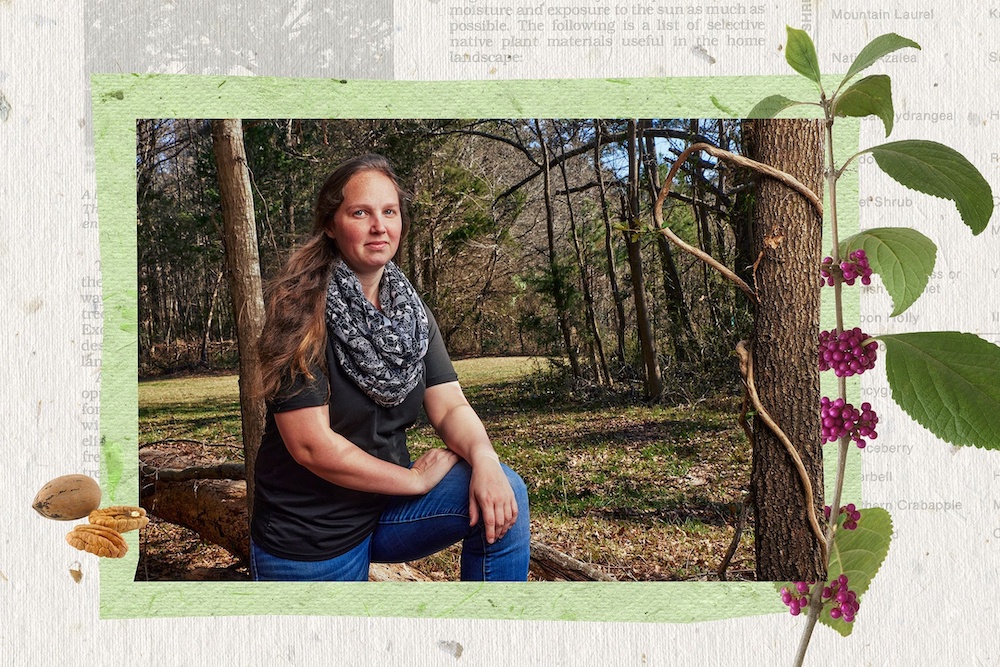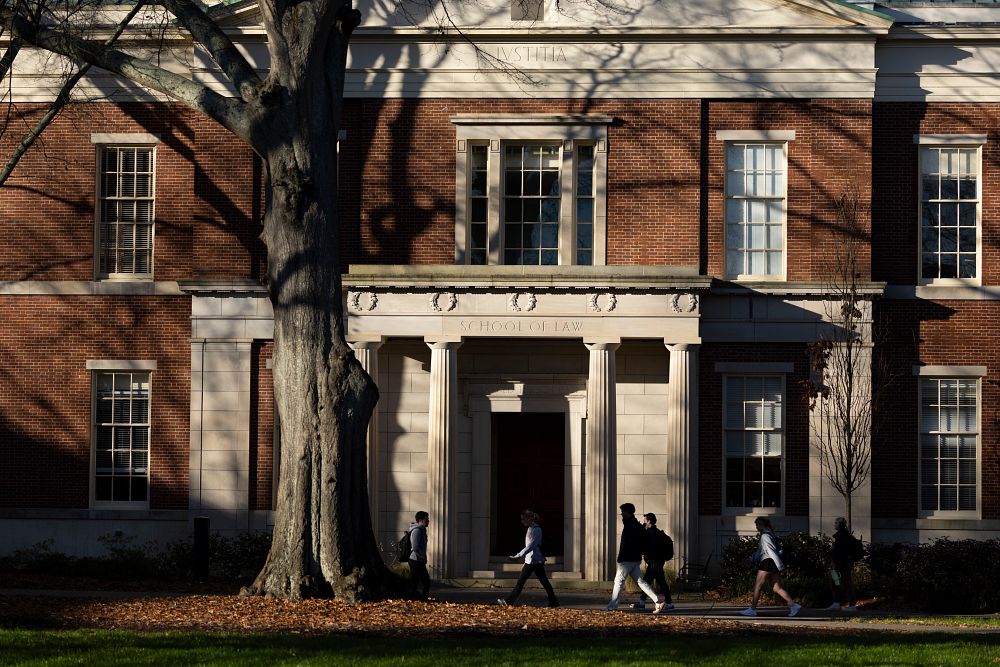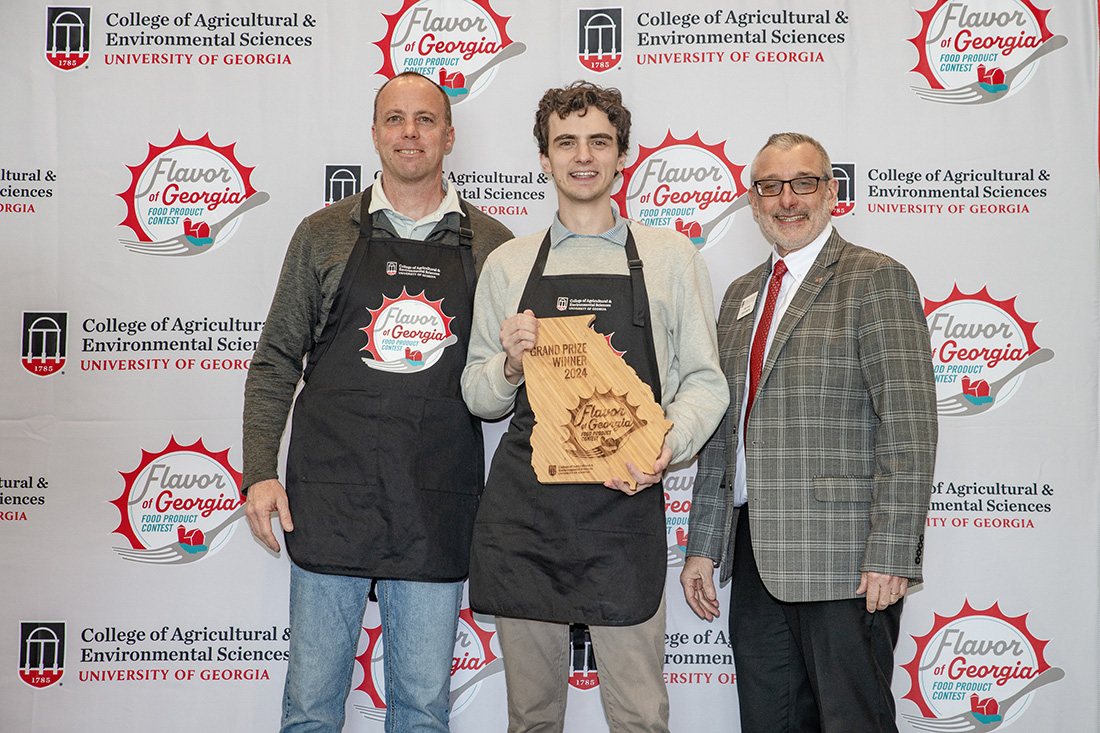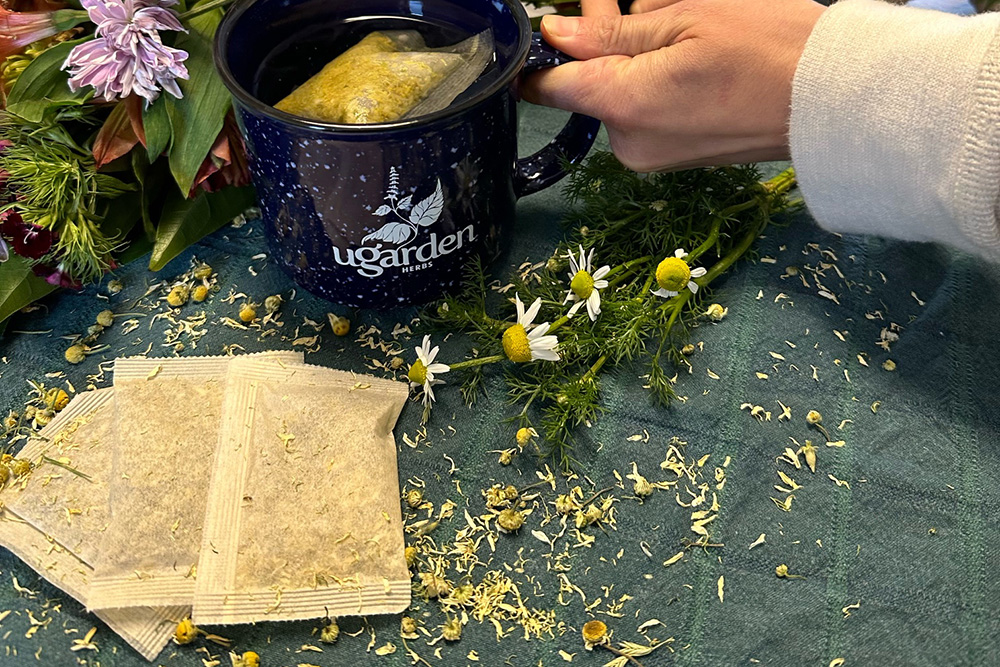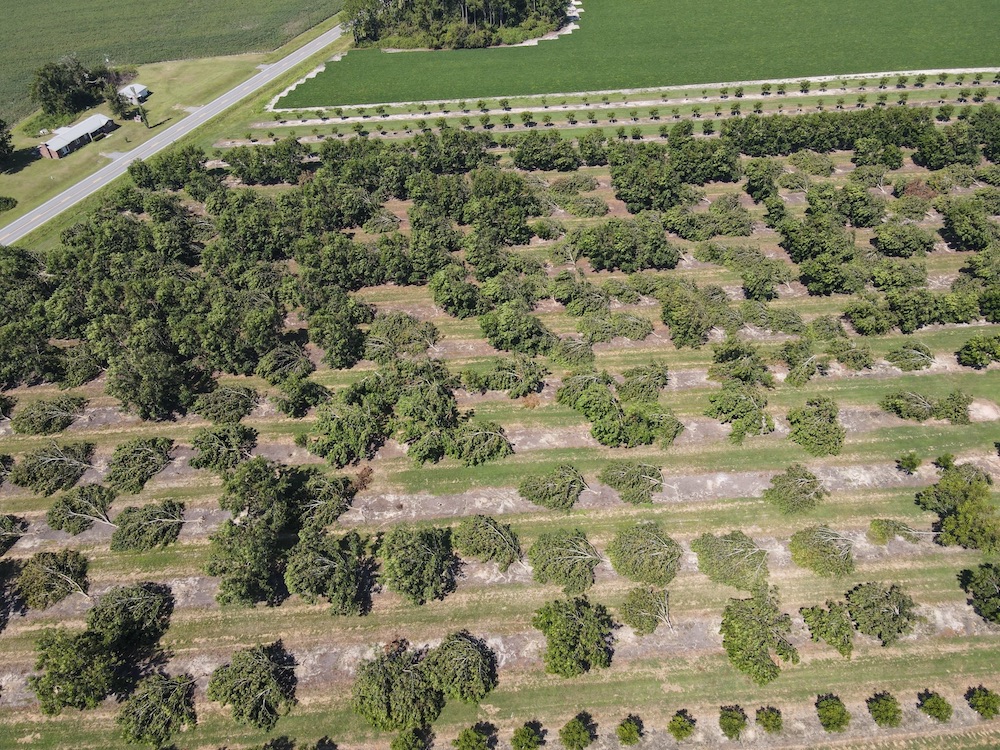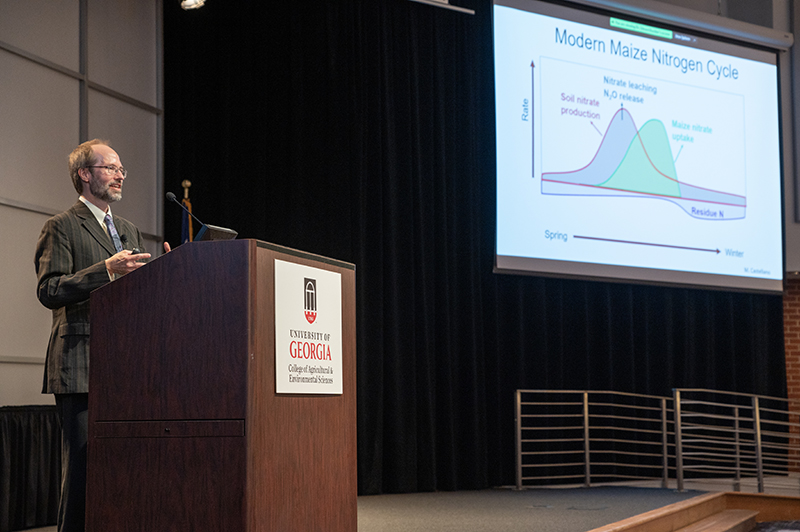 CAES News
CAES News
Holiday Food Safety
The holiday table: For many, it is the highlight of the season, packed with roast turkey, savory stuffing, homemade pies and perhaps a cold glass of eggnog. It is also a place where bacteria can linger, turning a holiday gathering into a very different type of party. As holiday menus are planned and grocery lists assembled, Carla Schwan, University of Georgia Cooperative Extension food safety specialist, urges home cooks to remember one key rule. Keep hot foods hot and cold foods cold.

